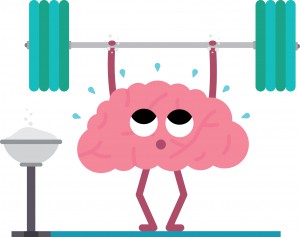 Much of health?care deliv?ery has tra?di?tion?ally been set-up to deal with a ?brain?less body?; yet we con?sis?tently com?plain that we can?not change patient and con?sumer behav?iours and main?tain adher?ence to treat?ment pro?grammes. Health?care sys?tems are now recog?nis?ing the lim?its of this model and that there are major ben?e?fits to bet?ter com?pre?hend?ing and engag?ing cog?ni?tive func?tion: to bet?ter under?stand how we oper?ate, why and how we make deci?sions, improve cog?ni?tion so that peo?ple can bet?ter self-regulate, self-manage and take con?trol,?and finally that we need to do more to pro?tect and main?tain cog?ni?tion in an increas?ingly age?ing population.
Much of health?care deliv?ery has tra?di?tion?ally been set-up to deal with a ?brain?less body?; yet we con?sis?tently com?plain that we can?not change patient and con?sumer behav?iours and main?tain adher?ence to treat?ment pro?grammes. Health?care sys?tems are now recog?nis?ing the lim?its of this model and that there are major ben?e?fits to bet?ter com?pre?hend?ing and engag?ing cog?ni?tive func?tion: to bet?ter under?stand how we oper?ate, why and how we make deci?sions, improve cog?ni?tion so that peo?ple can bet?ter self-regulate, self-manage and take con?trol,?and finally that we need to do more to pro?tect and main?tain cog?ni?tion in an increas?ingly age?ing population.
It was whilst explor?ing such trends in Alzheimer?s Dis?ease that we first engaged the Sharp?Brains organ?i?sa?tion and its founder, Alvaro Fer?nan?dez. Sharp?Brains is an inde?pen?dent mar?ket research firm and think tank, in the emerg?ing field of brain fit?ness and applied neu?ro?science. My recent dis?cus?sions with him, sum?ma?rized in a 2-part inter?view, have focused on the soci?etal and med?ical shift of brain health into main?stream health?care. What we are observ?ing is an evo?lu?tion where cog?ni?tive health moves to a life?long focus as part of holis?tic health and well?be?ing. So what is dri?ving this change and what might this mean for us?all?
Regional dif?fer?ences
Inter?est?ingly, the dri?vers of change dif?fer sig?nif?i?cantly region?ally. In the US for exam?ple, change is being dri?ven by con?sumer aware?ness and demand; many are pay?ing more atten?tion to and adopt?ing lifestyles to try to delay demen?tia or cog?ni?tive decline. In addi?tion, they are apply?ing their con?sumer rights to choose the physi?cians they feel are more knowl?edge?able and focused on cog?ni?tion. In Europe how?ever, pol?icy is more often dri?ving change as health sys?tems search for the best strate?gies to man?age a grow?ing elderly pop?u?la?tion. These dif?fer?ences sig?nif?i?cantly impact how inno?va?tions come about and develop over?time.
Win?ston Churchill once said that the United States does every?thing right after they have tried every?thing, and that entre?pre?neur?ial mind?set appears to be in evi?dent in brain health. The US has a vibrant mar?ket place, full of inno?va?tion. Ini?tially this was fairly unreg?u?lated but over time it has becomes more robust and sus?tain?able, with larger organ?i?sa?tions becom?ing involved adding to the cred?i?bil?ity of the indus?try. Europe, on the other hand, has been more con?ser?v?a?tive in nature, fol?low?ing inno?va?tion else?where. But these two approaches are com?ple?men?tary; although it will be a ?messier? jour?ney in the US, it is likely that we will see wider spec?trum of ideas, tech?nolo?gies and inno?va?tion being devel?oped. Then, in time, Europe will find sys?tem?atic ways to adopt and roll-out these technologies.
Accord?ing to Alvaro we are see?ing regional dif?fer?ences in the uptake of brain health solutions:
- North Amer?ica, again led by con?sumer demand, is tak?ing a more seri?ous approach. Brain fit?ness is viewed as a holis?tic con?cept, where main?stream lifestyle and tech?nol?ogy inter?ven?tions are used to improve brain health; in much the same way as phys?i?cal fit?ness is viewed.
- In Europe, where Nin?tendo Brain Train?ing games have been hugely suc?cess?ful, to this point con?sumers per?ceive brain train?ing as lit?tle more than an excuse for video gaming.
- Asia has had more inter?est from an edu?ca?tional per?spec?tive: how they can bet?ter arm chil?dren for the world of the future, enhanc?ing atten?tion, self-regulation, focus and cog?ni?tive performance.
Brain health becom?ing main?stream
It is likely that these dif?fer?ent regional per?spec?tives will con?verge over time as brain health becomes a more main?stream con?cept. What is already appar?ent across mar?kets is that in the cur?rent finan?cial cli?mate, new brain health inno?va?tions need to prove them?selves to be cost effec?tive (and prob?a?bly low cost). There have obvi?ously been huge ben?e?fits from com?plex inno?va?tions such as MRI, but these are expen?sive tech?nolo?gies. New cog?ni?tive inno?va?tions tend to be light-touch, non-invasive, inex?pen?sive and often har?ness web tech?nolo?gies, which is a very dif?fer?ent eco?nomic model to the tra?di?tional bio-medical approach.
What we are also see?ing, across regions, is an indus?try dri?ven by sci?ence and tech?nol?ogy pio?neers where dif?fer?ent approaches are tried, where a broad?en?ing evi?dence base is being built, and where large organ?i?sa?tions are increas?ingly lend?ing their weight to new research and development.
For exam?ple, the dri?vers? asso?ci?a?tion in the US, the AAA Foun?da?tion, now offers free or dis?counted com?put?erised cog?ni?tive train?ing to its 30 mil?lion mem?bers. The prod?uct, which com?prises 10?15 hours of train?ing, is specif?i?cally linked to the ele?ments of cog?ni?tion asso?ci?ated with safe dri?ving such as ?use?ful field of view?, which is a pre?dic?tor of acci?dents and tends to decline for peo?ple in their 50s, 60s and 70s. Tri?als in sev?eral states have shown ben?e?fits in terms of acci?dent rates ? reduc?ing poten?tial dam?age, injuries and costs for both its mem?bers and its insur?ance?arm.
This is obvi?ously not a stan?dard health?care prob?lem, but it does demon?strate the types of cost effi?cien?cies which can be realised. If you extrap?o?late this into areas where direct resource util?i?sa?tion and pro?duc?tiv?ity will affect health?care and work?ing life, you can begin to see the impact this could?have.
?> Part 2 of this inter?view will be pub?lished next Mon?day, Feb?ru?ary?18th.
 David Coleiro is a found?ing part?ner at?www.strategicnorth.com, and?this inter?view is an extract from the book Strate?gic Tales by Strate?gic North. To request your free copy please email them at info@strategicnorth.com.
David Coleiro is a found?ing part?ner at?www.strategicnorth.com, and?this inter?view is an extract from the book Strate?gic Tales by Strate?gic North. To request your free copy please email them at info@strategicnorth.com.
 For more infor?ma?tion on Alvaro Fer?nan?dez and Sharp?Brains work you can read the recent TED?Week?ends arti?cle Retool?ing Brain Care with Low-cost, Data-driven Tech?nolo?gies.
For more infor?ma?tion on Alvaro Fer?nan?dez and Sharp?Brains work you can read the recent TED?Week?ends arti?cle Retool?ing Brain Care with Low-cost, Data-driven Tech?nolo?gies.
rick perry travis barker get back on board rob lowe peyton manning what is sopa marianne gingrich ibooks author
No comments:
Post a Comment